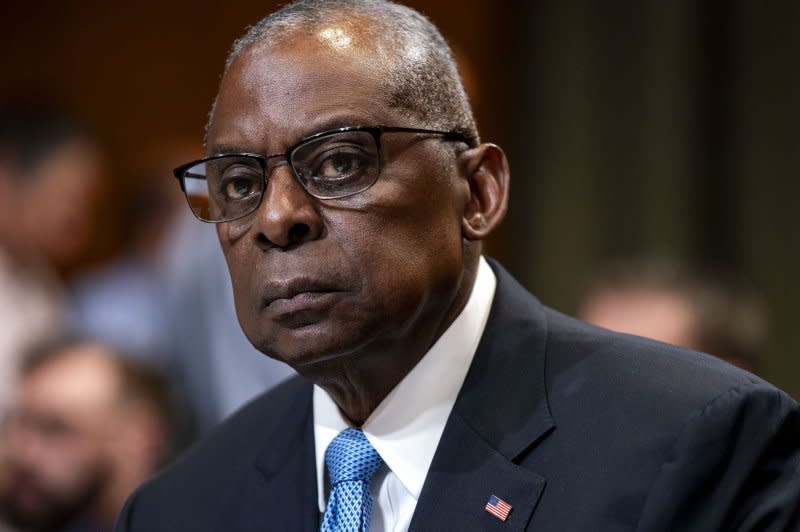Defense Secretary Lloyd Austin to undergo 'minimally invasive' medical procedure

- Oops!Something went wrong.Please try again later.
May 24 (UPI) -- U.S. Secretary of Defense Lloyd Austin is set to undergo a scheduled medical procedure Friday evening, the Pentagon said in a statement.
Deputy Secretary of Defense Kathleen Hicks will serve as acting secretary of defense in Austin's absence. The White House and Congress also have been notified, the statement read.
Austin is scheduled to undergo a "minimally invasive" follow-up procedure related to a previous bladder issue at Walter Reed National Military Medical Center. Austin's bladder issue is not related to his previous cancer diagnosis, according to the Pentagon.
The defense secretary in February came under fire from the House Armed Services Committee over his failure to notify the White House of his absence in December when he underwent surgery for prostate cancer at Walter Reed.
Austin then went back to Walter Reed in January due to a bladder complication from the surgery. Neither the White House nor Hicks were notified until three days later.

The Pentagon released an internal review of the situation, finding no wrongdoing on anyone's part. The review offered recommendations to improve communications and the transfer of authority in future situations.
After he was released from the hospital in February, Austin said his prostate cancer diagnosis was a "gut punch" and that his first instinct was to keep it private.
"We did not handle this right, and I did not handle this right. I should have told the president about my cancer diagnosis, and I should have also told my team and the American public. And I take full responsibility," he said in February.
Austin had said his doctors expect him to be "completely cured of my prostate cancer, which was caught early."

